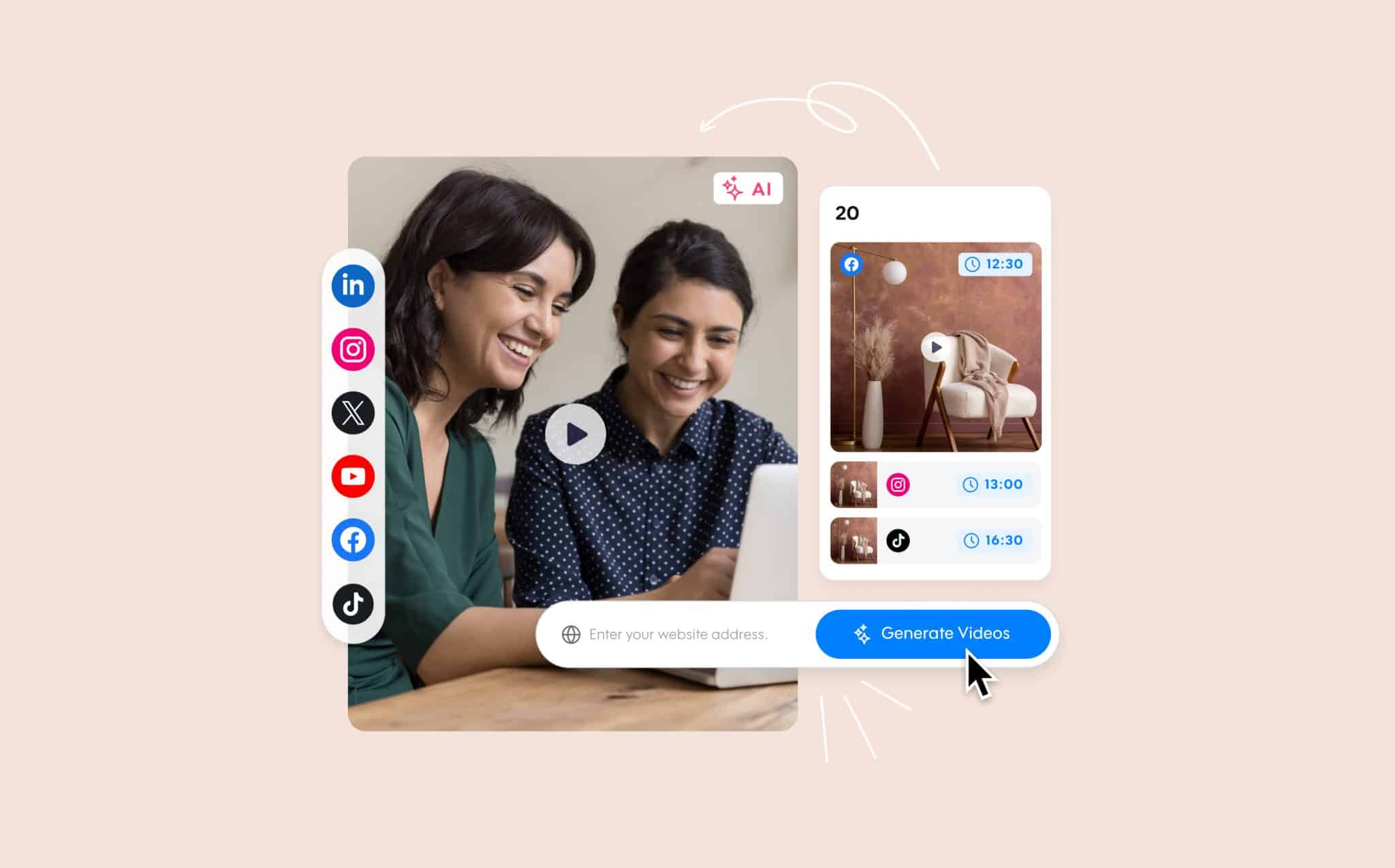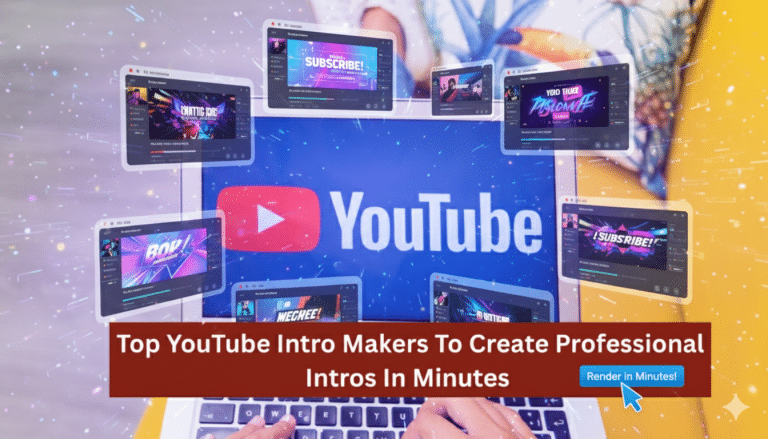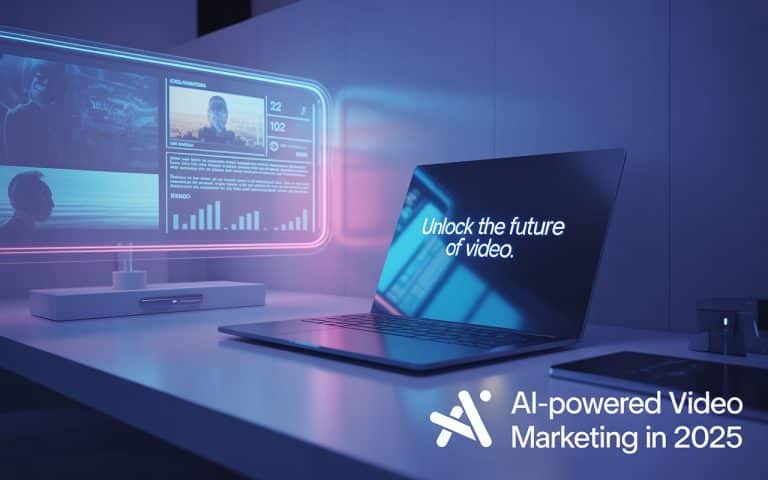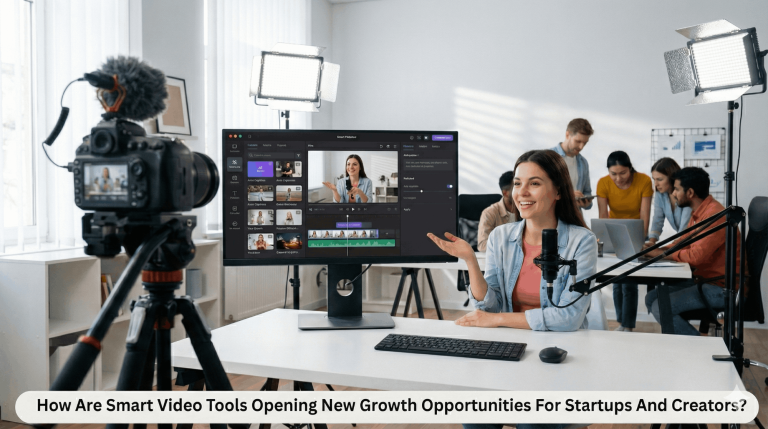
How to Use AI for Small Business Marketing
It’s no secret that small brands face a myriad of challenges in many facets of business, including marketing. That’s why they stand to gain even more from the rise of AI marketing tools than their more established competitors. Studies show that these tools are a major game-changer, with 54% of businesses reporting increased cost savings and efficiencies because of AI implementation. Yet only 15% of small businesses are using AI tech compared to 68% of large companies. Could this be because smaller businesses aren’t sure how to implement AI into their marketing strategies?
If you’re a small business owner looking to stay relevant, build an audience, find new customers, and maintain a competitive advantage in the digital marketing landscape, AI is an absolute must. This blog post offers advice on how to get started.
AI’s Marketing Applications
AI is transforming everything about how our world operates, touching on everything from how art is made to how surgeries are done. The field of marketing is no different, with AI powering countless tools that have the ability to transform how businesses find and engage with their audiences. Its applications span a wide array of functionalities, each contributing to enhanced efficiency, effectiveness, and, ultimately, success in reaching marketing goals.
Here are some of the applications of AI in marketing:
- Content Optimization: AI algorithms analyze data to generate tailored copies, videos, and graphics, ensuring relevance and resonance with target audiences.
- Targeted Advertising: AI tools for small business enable precise audience segmentation and targeting, maximizing the impact and ROI of marketing campaigns.
- Personalization: Through AI, businesses can deliver personalized experiences to customers, fostering stronger relationships and driving brand loyalty.
- Automation: AI automation streamlines repetitive marketing tasks like email campaigns and social media management, freeing up valuable time for more strategic work.
- Data Analytics: AI-driven analytics provide actionable insights from vast amounts of data, empowering businesses to make informed decisions and optimize marketing strategies.
- Customer Support: Chatbots and conversational AI platforms offer instant and personalized customer support, improving satisfaction and retention rates.
Challenges of Marketing Small Businesses
It’s important to recognize that small businesses have different needs and capabilities than big brands do. Marketing for small businesses is fraught with challenges that stem from limited resources, manpower, and the need to wear multiple hats. Overcoming these obstacles requires strategic planning, innovative solutions, and a keen understanding of the unique dynamics at play.
Here’s an in-depth look at some of the most pressing challenges faced by small businesses in their marketing endeavors.
High Workload
Small business owners often find themselves burdened with a multitude of responsibilities, ranging from managing operations to handling finances and customer relations. In such scenarios, dedicating time and effort to marketing initiatives becomes a daunting task. The high workload can leave little room for strategic planning, creative brainstorming, or executing marketing campaigns effectively. As a result, marketing efforts may take a backseat, leading to missed opportunities for growth and customer engagement.
Time Management
Efficiently managing time is crucial for small business owners who must juggle multiple tasks simultaneously. However, with the demands of day-to-day operations and administrative duties, finding time for strategic marketing activities can be challenging. Without proper time management strategies in place, important marketing tasks may get sidelined or rushed, compromising the quality and effectiveness of campaigns. Moreover, the lack of dedicated marketing personnel further exacerbates time management issues, as business owners struggle to balance competing priorities.
Budget Constraints
Limited financial resources pose a significant barrier to small businesses looking to invest in marketing efforts. Unlike larger corporations with sizable marketing budgets, small businesses must make every dollar count. Budget constraints may restrict the ability to allocate funds to advertising, digital marketing, or other promotional activities essential for brand visibility and customer acquisition. As a result, small businesses may resort to cost-cutting measures or forgo marketing altogether, missing out on opportunities to reach their target audience and drive growth.
Low Manpower
Small teams with limited manpower face challenges in executing comprehensive marketing strategies. With fewer resources at their disposal, small business owners may struggle to cover all necessary marketing tasks adequately. From content creation and social media management to graphic design and campaign analysis, the workload can quickly become overwhelming. The lack of specialized marketing expertise within the team further compounds the issue, as small businesses may lack the skills and knowledge needed to develop and execute effective marketing strategies.
Struggling with Multiple Tools
In today’s digital age, small businesses have access to a plethora of marketing tools and platforms designed to streamline processes and drive results. However, managing multiple tools simultaneously can pose its own set of challenges. From email marketing platforms and social media management tools to analytics software and CRM systems, small businesses may find themselves struggling to navigate the complexities of disparate tools and platforms. Integrating and synchronizing data across multiple systems can be time-consuming and prone to errors, hindering productivity and efficiency.
The Benefits of Integrating AI for Small Business
Thankfully, AI provides a transformative solution for brands grappling with the challenges of marketing a small business. Let’s take a look at the benefits of integrating AI into your marketing processes as a small business.
Efficiency and Automation
AI-powered tools enable small businesses to automate repetitive tasks, freeing up valuable time and resources for strategic initiatives. From content creation and email marketing to social media management and customer support, AI automates workflows, reducing manual intervention and minimizing the risk of human error. By automating routine tasks, businesses can maximize productivity, improve scalability, and focus on activities that drive growth and innovation.
Cost-Effectiveness and ROI
Despite budget constraints, small businesses can leverage AI to maximize the impact and ROI of their marketing efforts. AI-driven tools enable businesses to optimize advertising campaigns, allocate resources more effectively, and identify opportunities for cost savings. By leveraging AI for predictive analytics and data-driven decision-making, businesses can minimize wasteful spending, optimize marketing budgets, and achieve better results with limited resources.
Scalability and Flexibility
AI-powered solutions are highly scalable and adaptable, making them ideal for small businesses looking to grow and expand their marketing efforts. Whether scaling operations to accommodate growth or pivoting strategies in response to changing market dynamics, AI provides the flexibility and agility small businesses need to stay competitive. Additionally, cloud-based AI platforms offer scalability without the need for significant upfront investment in infrastructure, making them accessible to businesses of all sizes.
Insights and Optimization
AI-driven analytics provide businesses with valuable insights into customer behavior, market trends, and campaign performance. By leveraging AI for real-time data analysis and predictive modeling, businesses can identify opportunities for optimization, refine marketing strategies, and make informed decisions to drive business outcomes. Moreover, AI-powered attribution modeling enables businesses to accurately measure the impact of marketing initiatives across channels, allowing for more effective allocation of resources and optimization of marketing spend.
Applying AI to Your Marketing Processes
As we’ve seen, integrating AI into your marketing processes can revolutionize the way you create content, streamline operations, and drive business growth. Here’s how you can leverage AI to optimize various aspects of your marketing strategy.
Content Creation and Personalization
AI-powered content generation tools can automate the creation of engaging and relevant content across various channels. Tools like PromoAI Creative Copilot quickly analyze your branding and niche, delivering professional-level social media content 20 times faster than you can achieve with manual processes.
Audience Segmentation and Targeting
AI-driven analytics enable businesses to segment their audience more effectively and target them with personalized messages and offers. By analyzing vast amounts of customer data, AI algorithms can identify patterns, behaviors, and preferences, allowing businesses to tailor their marketing campaigns to specific audience segments. This is essential in a business landscape in which 71% of consumers expect companies to deliver personalized interactions. From demographic and psychographic segmentation to predictive modeling and propensity scoring, AI empowers businesses to deliver more relevant and targeted marketing messages that drive higher engagement and conversion rates.
Predictive Analytics and Optimization
AI-powered predictive analytics can help businesses anticipate customer behavior, identify trends, and forecast outcomes with greater accuracy. By leveraging machine learning algorithms, businesses can analyze historical data, identify patterns, and make data-driven predictions about future events, such as customer churn, purchasing behavior, and market trends. Additionally, AI-driven optimization algorithms can automatically adjust marketing campaigns in real-time based on performance metrics, maximizing ROI and driving continuous improvement.
Customer Experience and Support
AI-powered chatbots and virtual assistants can enhance the customer experience by providing instant support and personalized assistance around the clock. By leveraging natural language processing (NLP) and machine learning algorithms, chatbots can understand customer inquiries, provide relevant information, and resolve issues in real-time, improving customer satisfaction and loyalty. Moreover, AI-driven sentiment analysis tools can monitor customer feedback across various channels, enabling businesses to identify trends, address concerns, and optimize the customer experience.
Marketing Attribution and ROI Analysis
AI-powered attribution modeling tools help businesses accurately measure the effectiveness of their marketing across various channels and touch points. This allows for precise ROI analysis and improved resource allocation. Additionally, AI-driven predictive modeling forecasts the impact of future marketing campaigns. This helps businesses make informed decisions and optimize their strategies for better effectiveness and efficiency.
A Step-by-Step Guide to Integrating AI Into Your Marketing Strategy and Processes
Convinced that AI is an essential addition to your marketing toolbox? Let’s go over some actionable steps that will help your small business harness the power of AI and propel your marketing efforts to new heights of success.
- Identify Objectives: Start by defining clear objectives for integrating AI into your marketing strategy. Determine specific areas where AI can address challenges or enhance efficiency, such as content creation, audience targeting, or analytics optimization.
- Assess Resources: Evaluate your existing resources and capabilities to determine readiness for AI integration. Consider factors such as budget, technological infrastructure, and team expertise. Determine if additional training or investment is needed to support AI implementation.
- Research AI Solutions: Explore the wide range of AI-powered tools and platforms available for marketing purposes. Our list of 10 AI Marketing Tools Your Team Should Be Using in 2024 here can help.
- Define Use Cases: Identify specific use cases and workflows where AI can add value to your marketing processes. For example, AI can automate repetitive tasks like content generation, personalize customer experiences through predictive analytics, or optimize advertising campaigns through data-driven insights.
- Pilot Test: Before fully integrating AI into your marketing strategy, conduct pilot tests to assess feasibility and effectiveness. Select a small-scale project or campaign to test AI solutions in real-world scenarios.
- Integrate with Existing Systems: Many AI tools offer integration with common applications and systems. If you’re using more than one, see if you can link them to one another for even more efficiency.
- Train and Educate Employees: Provide comprehensive training and education for any employees who might be involved in using AI-powered tools.
- Monitor and Measure Performance: Continuously monitor AI performance and track key performance indicators (KPIs) to assess impact on marketing outcomes. Analyze metrics such as engagement rates, conversion rates, and ROI to evaluate effectiveness and identify areas for optimization.
- Iterate and Innovate: Use insights gained from monitoring performance to refine strategies and improve results over time. Stay updated on emerging AI technologies and trends to remain competitive in the evolving marketing landscape.
Transform Your Social Media Strategy
The potential of AI in small business marketing is massive. By embracing AI-driven technologies, businesses can overcome challenges, optimize processes, and unlock new opportunities for growth.
Ready to use AI to transform your social media marketing efforts? Take the next step with PromoAI Creative Copilot. Let AI handle the heavy lifting of your marketing strategy, from generating creative strategies in seconds to optimizing and scheduling cross-channel posts. Try PromoAI today to elevate your brand and stay ahead in the competitive marketing landscape.



